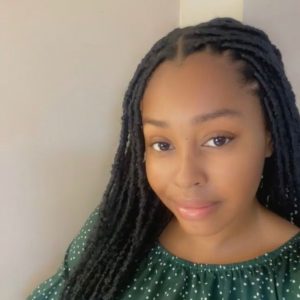– aims to enlighten children, adults on Caribbean culture
LANGUAGE has the power to not only unite people from different walks of life, but also can preserve one’s culture.
Under the theme, “Calling 592: Honouring, Researching, Reigniting Diaspora,” the Dictionary of Caribbean English Usage (School Edition) was launched, on Tuesday, at the University of Guyana’s (UG) 2nd Diaspora conference.
The Dictionary of Caribbean English Usage was originally compiled by Richard Allsopp, and was first published in 1996. Dr. Jeannette Allsopp and Wendy Griffith-Watson edited the school edition.
Recapping how her husband came to produce such a novelty, she said that after he visited countries like England and observed the differences between Caribbean English and British English, he decided to educate and enlighten others on this topic.
While giving her feature address, Dr Allsopp disclosed that the 27-year-old book is filled with “linguistically sophisticated” detail and is therefore inaccessible to most teachers and students.
She further stated that as the original book was being compiled, she and the rest of the team, including her late husband, underscored that a school edition of the Caribbean English Dictionary is a must for the future.
Dr. Allsopp said that she can recall her late husband vividly saying to her: “…make sure you do the school edition, and you continue the multi-lingual works…”
“The school edition is a result of that promise,” she affirmed.
Dr. Allsopp, who started teaching at UG in 1963, said, “this [book launch] is a hugely emotional moment for me.”
Though the school edition has a few changes, she stated that the book follows the same format as the original, only this time, for the students, she extracted the “fancy” linguistic terms to make learning easier.
“My motivation, my purpose [was]… for the schools to ensure that students can relate various lexical items… to a particular topic…” Allsopp disclosed.
While going through a section of her book, Dr. Allsopp made the point that across the Caribbean region, the names for certain items differ. This book will show what some items are called in other Caribbean territories.
The dictionary not only defines these items but also provides illustrations, a detailed description, and the word’s history.
“Since it is a book for children, we want children to be able to identify the right object,” she explained.
According to Allsopp: “Now, the point to be made is that all these items reflect our linguistic and our cultural heritage because language is culture.”
She then went on to say, “… Our linguistic psyche has been bruised enough by the colonial masters for us to feel or to have felt… that our language was inferior,” adding that this lie that was peddled for decades is untrue. “We as Caribbean people ought to embrace our heritage.”





.jpg)








